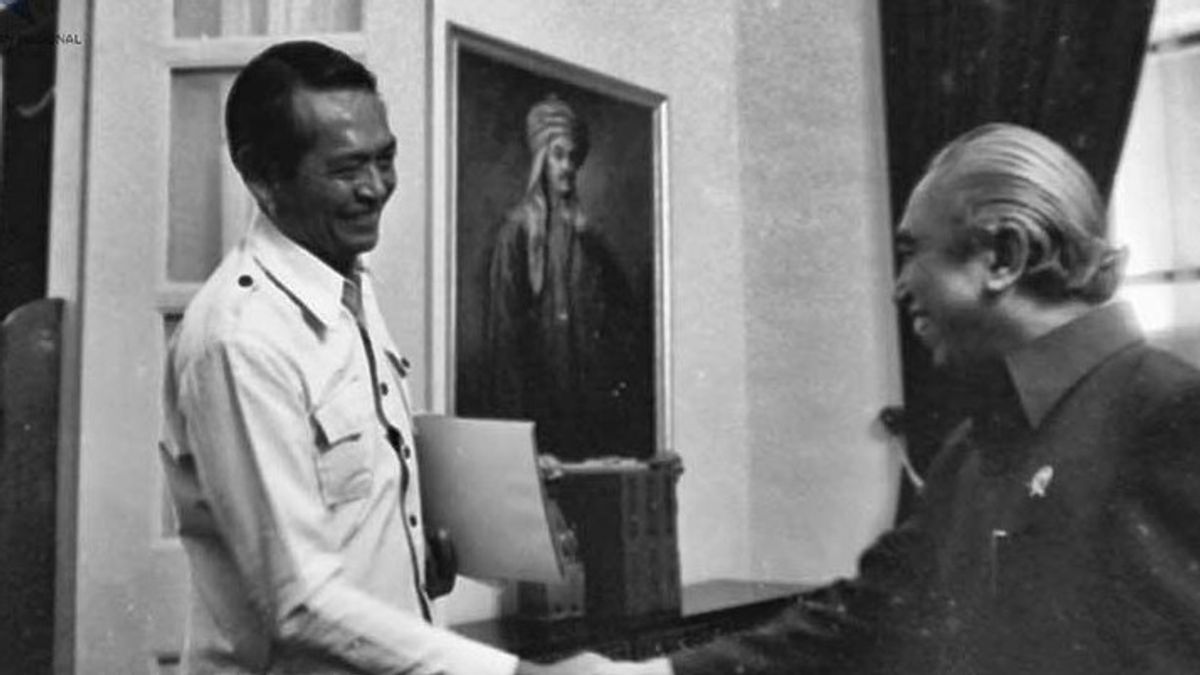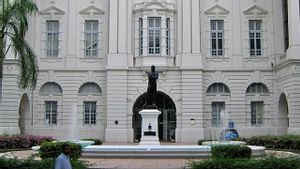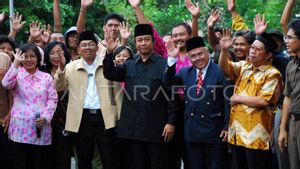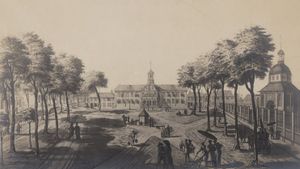JAKARTA Memories of today, 19 years ago, July 2, 2004, a well-known Indonesian journalist and a National Press Leader, Mochtar lubis died at Medistra Hospital, Jakarta. His departure brought deep sorrow for the people of the press and also the people of Indonesia.
Previously, Mochtar Lubis' presence as a journalist made many parties aware of the importance of the mass media as the mouthpiece of criticism. He dared to perpetuate strong criticism from the Bung Karno to Suharto era. Even though he had to languish in prison.
Regarding state policy criticism, Mochtar Lubis is good at it. The editor-in-chief of the Greater Indonesia newspaper did not hesitate to skin corrupt policies and lifestyles of government officials. This existence has been perpetuated since the reigns of Soekarno and the Old Order.
He used the correct function of the press as social control media. His criticism was sharp and offensive. As a result, Mochtar Lubis had to receive the consequences of his criticism. He was in prison for nine years (1956-1965).
This step was taken by the Old Order to silence Mochtar Lubis' critical power. In fact, he remains productive writing from behind bars. He returned as a journalist when Bung Karno stepped down from the government.
His critical power did not necessarily decrease. Even though what he was facing were new leaders: Suharto and the New Order (Orba). He dared to dissect and even expose the corrupt behavior of the New Order ranks. Ibnu Sutowo as the leader of Pertamina had finished.
His courage then led Mochtar to once again languish in iron bars for two months. He was not deterred. His actions stood for the truth to keep burning. The proof is that Mochtar Lubis is also one of the figures in the Petition 50 movement. A group against Suharto abused Pancasila to repulse his political opponents.
Mochtar Lubis is a person who has a critical character in encouraging the transformation of political culture and anti-corruption in the country. Mochtar Lubis carries a Personal Journalism or typical journalism which is synonymous with the character of the editor-in-chief of a media. Mochtar Lubis monjadi icon of Indonesia Raya during the Old Order and New Order eras. Mochtar Lubis tomposit the press as a critical cultural transformation space.
Mochtar Lubis criticized the country and the corrupt behavior of the authorities at a time when the transformation space was closed by the authoritarian regimes Soekarno and Suharto. Mochtar Lubis is an jilhad journalist who dares to speak straight, honest, and is open to encouraging changes in the political behavior of corrupt elites. Mochtar Lubis made the press a forum for the struggle for ideas with pens, "explained Mansyur Semma in the book Negara and Corruption (2008).
Mochtar Lubis' courage also inspired many people. He then made many works. From articles, novels, to books. The presence of his works is proof that his guts throw criticism at the government never goes out.
SEE ALSO:
This spirit continued until he died on July 2, 2004. He died at Medistra Hospital because he had various diseases. His departure brought deep sorrow to all Indonesian people. He was then buried at the Jeruk Purut Public Cemetery (TPU), Jakarta.
Mochtar Lubis, died at the age of 82 last Friday. The press community lost a figure who was seen as a star in the sky: too high to fly, but was very useful as a guide to those who lost the compass in the middle of the ocean and did not see a beacon in the dark.
Indeed, understanding Mochtar Lubis' actions in maintaining press freedom is as difficult as reaching the star. Including for his close circles, Atmahusuma's story in his writing in Tempo Magazine entitled Mochtar Lubis, Bintang di Langit (2004).
The English, Chinese, Japanese, Arabic, and French versions are automatically generated by the AI. So there may still be inaccuracies in translating, please always see Indonesian as our main language. (system supported by DigitalSiber.id)














